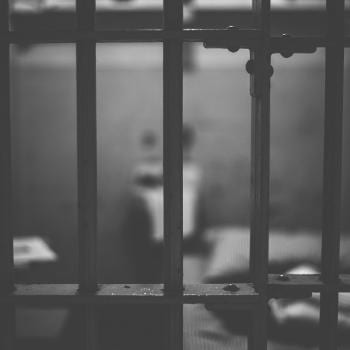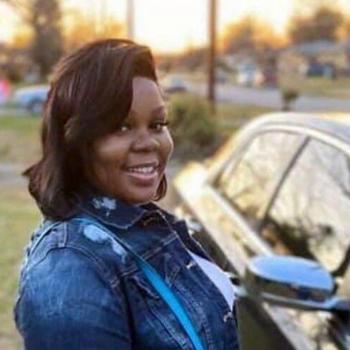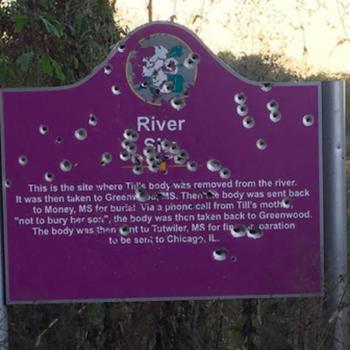On Monday, the governor’s office granted clemency to Cyntoia Brown, a Tennessee woman imprisoned for 15 years. Over the past few months, growing public knowledge of Cyntoia’s story inspired a movement to see her freed. Cyntoia’s story gained attention in part because of its intersection with efforts to reform the criminal justice system and efforts to better meet the needs of abused women and children. When a final court appeal in her case failed, pressure mounted on the governor to grant clemency.
I’m excited that Cyntoia is going to have the chance to lead a fulfilling—and free—life outside of prison. While many individuals struggle when they leave prison (due in part to gaps in our social support system and in part to problems with our prison system), Cyntoia was able to get a college degree while behind bars, and her story’s publicity should help her avoid some of the problems others in her position face. Like many others, I’m rooting for her.
As I’ve watched my social media feeds and read coverage of Cyntoia story, however, I’ve noticed something that worries me. There is a narrative going around that Cyntoia was a child slave who killed her pimp when he tried to rape her and then stole money from his house to fund her escape. This narrative is neat and tidy. It’s uncomplicated. It’s something that is easy to rally around. It’s also factually incorrect.
It’s difficult to correct people who repeat factually incorrect narrative uncritically without coming across as attacking Cyntoia—or as detracting from efforts to secure her release. So mostly, I’ve said nothing. I wanted to see Cyntoia freed too; how much did some inaccuracies matter? But as I’ve turned this matter over in my head, I’ve realized why these inaccuracies bothered me: If we paint Cyntoia’s story as black and white—uncomplicated—we undermine the revolutionary power of the movement to see her released.
Essentially everyone agrees that the obviously innocent—those whom everyone views as victims—should not be imprisoned. Fewer understand that people often make complicated decisions in abusive situations—including decisions that may not make much sense to those looking in from the outside—or that teens can do objectively terrible things and still be rehabilitated. We need to be careful not to reinforce a narrative that only the most obviously innocent victims deserve our concern—or clemency.
Cyntoia killed a john, not her pimp. The forensic evidence strongly suggests that he was asleep when she shot him. Cyntoia said he had shown her his guns; that she did not want to have sex with him and told him that she was tired and wanted to sleep; that he acquiesced to letting her sleep but was acting erratically; and that she was afraid that he would shoot her if she did not ultimately agree to have sex with him.
She stole money and guns from the john after shooting him because she couldn’t go back to her pimp empty handed. With those things, she returned to the motel where they lived. The next day, she called 911 to report a homicide at the john’s house, because his death wasn’t on the news and she hated the thought of his body sitting there. She made suspicious comments to several associates, who called in a report to the police. Cyntoia was at the motel where she lived with her pimp when she was arrested.
Cyntoia was 16. She was a former foster child; her adoptive father was abusive; she was a runaway. She was hooked on drugs and had been raped several times, by multiple different men. She styled her pimp her boyfriend, but it was his idea to pimp her out on the corner in order to get drug money. She wanted to leave him, but told her adoptive mother in a letter that he’d threatened to come after her family if she did.
For many, the most obvious way out of this situation would be for Cyntoia to shoot her pimp (he had given her a gun), take his money, and run. Perhaps that’s why the narrative that that is what she did is floating around. But if we expect abused women to do the obvious thing, well—that’s exactly why Cyntoia was sentenced to life in prison. Her decisions, the jury decided, didn’t look like those of an abuse victim.
It’s important for people to understand that an abuse victim’s actions will not necessarily be those that we think we would take, in their situation—because, well, we are not in their situation. It’s much like that article that went around several years ago, in which a wealthy white mane explained how he would get out of poverty if he were a black boy growing up in a blighted neighborhood. Those might be the actions he would take if he were a middle aged rich white man in a poor black boy’s body, but life doesn’t work like that. You only get to be in your situation, you don’t get to also look at it clinically from the outside.
There’s another piece to consider as well: What if Cyntoia hadn’t been abused? What if she’d killed a man at 16 merely to rob him, and not because she was afraid he would harm her? Would a life sentence be in order in this case, even if she later became a model prisoner and student? I would argue no.
I am opposed to life sentences for juveniles across the board. I want a prison system that focuses on rehabilitation—that values, rewards, and supports prisoners’ efforts to turn over a new leave. Cyntoia doesn’t deserve clemency only because the circumstances of her situation were exculpatory. She also deserves clemency because, whatever she did or did not do, she has grown into a mature, capable young woman—the kind of person we want actively involved in our society, not sitting behind bars.
Efforts to render Cyntoia’s story uncomplicated—to sub in the actions we think would have been most reasonable for her to take in her situation—may be useful in securing her individual release, but they do a disservice to larger efforts to create prison reform and a more effective—and fair—criminal justice system. And that is why I think we can—and should—tell Cyntoia’s story better.
I have a Patreon! Please support my writing!















